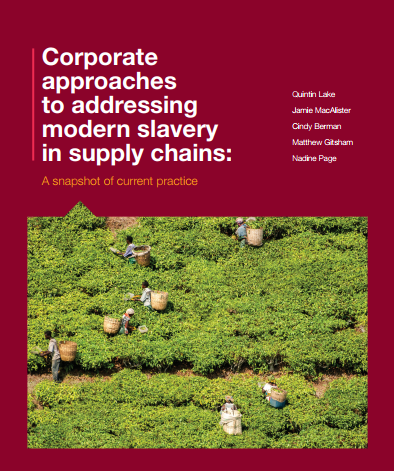In October 2015, complying with the UK Modern Slavery Act became a legal requirement for at least 12,000 companies in the UK and around the world. The Ashridge Centre for Business and Sustainability at Hult International Business School and the Ethical Trading Initiative (ETI) partnered to lead this research into company perspectives and responses to the risks of modern slavery in their global supply chains — against a backdrop of increasing global human rights legislation and reporting requirements.
The research engaged a range of companies that are already actively managing labour standards in their supply chains. The specific aims were to:
• Provide insights into the motivation, drivers and practices of companies as they develop policies and strategies to address or mitigate the risks of modern slavery in their supply chains;
• Provide insights for companies engaging with modern slavery for the first time by sharing the experience and learning of others, helping to accelerate the Modern Slavery Act’s aim of creating a level playing field;
• Create a qualitative baseline for ETI on how their member companies are addressing modern slavery at the time the Modern Slavery Act is coming into force.
The researchers interviewed 21 retailers and tier 1 suppliers from across the apparel, grocery, department store, home and garden retail, beverage, fresh produce and health and personal care sectors.
This report reflects a snapshot of current practice in the companies who volunteered to participate. It is not a guide for good practice, nor an assessment of companies’ readiness or capacity to meet the requirements of new legislation. Instead, it draws on valuable insights from a group of companies that are likely to be further along in their thinking and practice than others.

